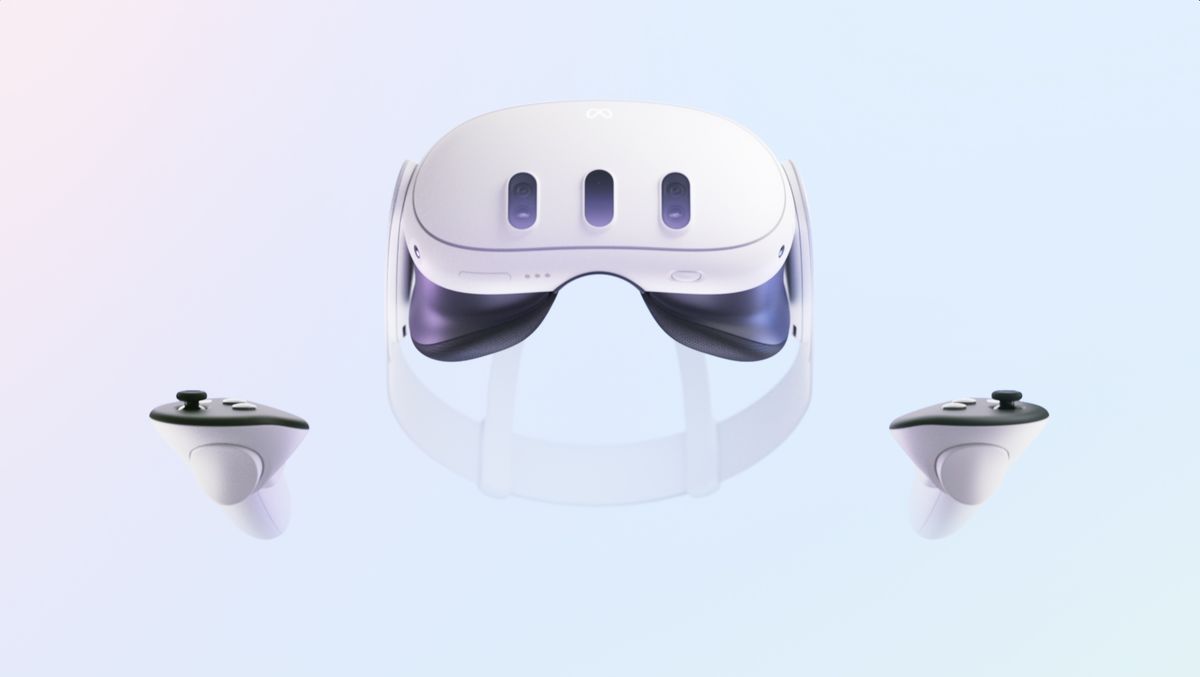Fairphone 5 puts Apple, Google and Samsung to shame in one major way
Netherlands-based eco-friendly phone maker Fairphone is at it again, introducing the Fairphone 5 almost two years on from its predecessor, with the promise of an even more environmentally friendly construction, more user-replaceable parts, and industry-leading long-term software support that shames the biggest rivals.
Fairphone has carved a space out in the mobile market by being the brand, when it comes to ethical and environmentally conscious smartphone production and sale. Longevity is a huge part of the Fairphone formula, with extended software support and a high-degree of user repairability, plus the offer of component-level hardware upgrades, so you don’t have to replace an entire device to gain access to a nicer display or a better camera.
Naturally, the Fairphone 5 embodies all of these qualities but ups the ante in terms of both the hardware and software proposition, while also challenging the wider mobile industry; leading by example in areas like sustainability and fair pay for workers along the phone’s supply chain.
At a hardware level, the Fairphone 5 is the first in the series to make the jump from LCD to OLED for its display technology, with a 6.46-inch 90Hz Full HD+ panel that should mark a notable upshift in the Fairphone viewing experience. A trio of new higher resolution 50MP cameras features too, with a Sony IMX800 sensor (used in phones like the excellent Xiaomi 13) supported by OIS (optical image stabilization) leading the charge, along with an ultra-wide and a punch hole selfie snapper. Fairphone says it’s worked hard to optimize the camera experience on the Fairphone 5 to ensure better performance, particularly in low light.
Here’s the full spec breakdown:
| Header Cell – Column 1 | |
|---|---|
| Dimensions: | 162 x 75.5 x 10.5mm |
| Weight: | 212 grams |
| Screen: | 6.46-inch 20:9 Full HD+ 90Hz OLED, protected by Gorilla Glass 5 |
| Audio: | Stereo speakers, Bluetooth 5.2 |
| Chipset: | Qualcomm QCM6490 |
| RAM: | 8GB (LPDDR4X) |
| Storage: | 256GB (UFS 2.2) + microSD (up to 2TB) |
| OS: | Android 13 |
| Primary camera: | 50MP, f/1.88 w/ OIS (Sony IMX800) |
| Ultra-wide camera: | 50MP, f/2.2 w/ 121º FoV (Sony IMX858) |
| Front camera: | 50MP w/ 90º FoV (Samsung ISOCELL JN1) |
| Battery: | 4,200mAh (user replaceable) |
| Charging: | 30W wired |
| Colors: | Sky Blue, Matte Black, Transparent |
The modular nature of the phone’s components means you can swap out the likes of the camera or even the USB-C port as needed but this also extends to the battery: a user-replaceable 4,200mAh cell tied to 30W wired fast charging which Fairphone says will last for 12 hours of call time and recharge to 50% in under 30 minutes. In fact, Fairphone promises a roster of 11 components total that users will be able to swap out, should they need replacing or under-perform.
As for durability, not only is the Fairphone 5 MIL-810H rated against shock and drops, it’s also IP55-certified, meaning it’s a little more water resistant than its predecessor. Fairphone even revealed during the launch Q&A that some individual components actually possess higher ingress protection (the USB-C port is IP67-rated, for example) but as a whole package, the phone is rated up to IP55.
Perhaps the biggest win for the end-user is the software promise. We’ve commended Samsung for beating Google in the Android camp, by offering four years of OS updates and five years of security updates on the majority of its phones, while Apple’s iPhones have, in the past, received as many as six OS updates in their lifetime. Fairphone is now raising the stakes, by promising five years of OS updates and eight to ten years of total software support, meaning the company won’t technically drop the Fairphone 5 until as late as 2033. Executives during the launch also spoke to the timeliness of updates, meaning users should expect OS updates sooner than in previous years.
Aside from being a landmark move to help ensure users have a functional and secure phone for longer than competitors, this is only really possible as a result of the unusual chipset choice Fairphone has opted for with its latest device. While the company has continued to work with Qualcomm, unlike competitors who’d typical slot Snapdragon-branded silicon inside their smartphones, the Fairphone 5 instead uses the company’s QCM6490. Although the branding may not be as clean cut, this octa-core chip actually comes from Qualcomm’s IoT product line and thus is purpose-built to facilitate longer-term software updates than equivalent Snapdragon mobile chips (even if Fairphone is promising yet more support beyond Qualcomm’s own cut-off of 2028).
As stated by WinFuture, performance shouldn’t be too dissimilar to that of a Qualcomm Snapdragon 778G, which – when also considering the other specs on the table – places the Fairphone 5 somewhere in the region of the Nothing Phone 1 and Samsung Galaxy A54; a well-rounded lower mid-range offering but with all its unique environmentally-focused selling points.
The price of progress

Considering the spec sheet, a price of £649 / €699 (approximately $825 / AU$1,270) is certainly on the high side in terms of spec-for-spec comparison, but is better justified when you consider the unique proposition the Fairphone 5 puts forward. The cost covers the R&D costs of building a modular phone with user-replaceable parts built within a supply that isn’t typically geared towards such styles of manufacture.
It’s a price that allows Fairphone to offer an extended five-year warranty, create a product that is e-waste neutral and pulls from Fairtrade sources for the precious metals used. It even ensures living wage bonuses for workers within the Fairphone 5’s supply chain; all factors we never really hear about from other phone makers.
As for when you can get your hands on one, pre-orders kicked off at launch on August 30, with availability in Europe and the UK as of September 14. US availability is still up in the air, with the company stating that it’s “focusing on their customer base in Europe first” but that it is still also “exploring and considering the US.”
For reference, the Fairphone 4 did come to the US, but not until July this year and by way of distributor Murena, whose version of the phone comes running e/OS, not conventional Android; complete with the Google Play Store. It’s unclear at this stage whether Fairphone will pursue a similar path with the Fairphone 5, when it comes to a US roll out.
The Fairphone 5’s arrival doesn’t spell the end for the Fairphone 4 either. The company will continue to sell its 2021 phone at a reduced price of €529, and also continues to offer components and software updates for the device.


